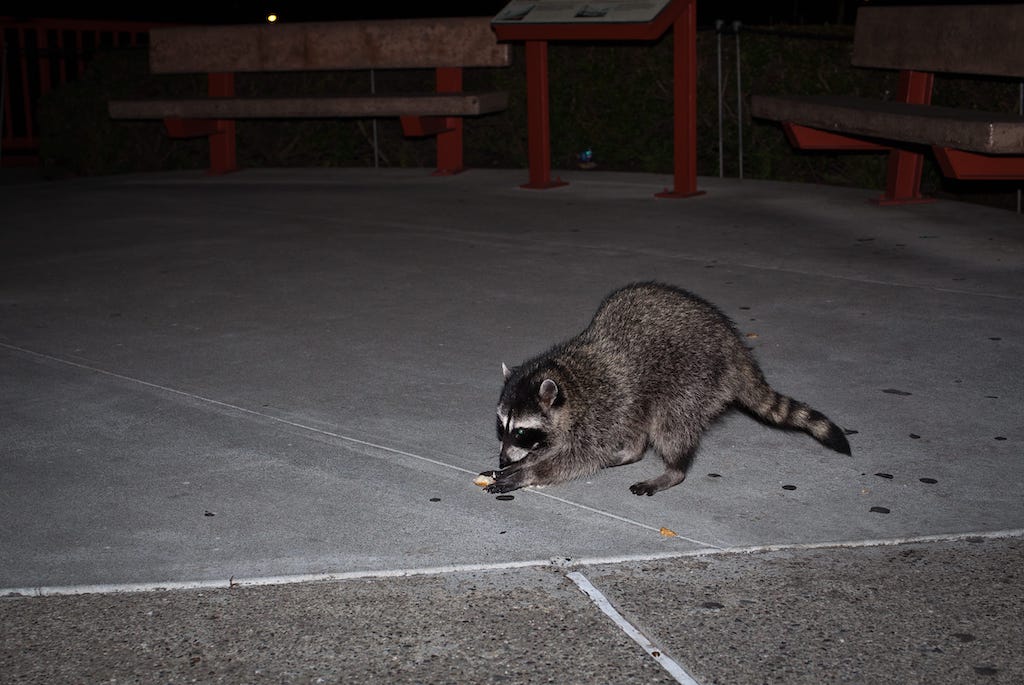Raccoons in your attic are a homeowner’s worst nightmare. These creatures are destructive, noisy, and they carry parasites and diseases that could harm your family and pets. Also, raccoons can be very challenging to get rid of, especially during baby raccoon season. To remove raccoons from your attic the best way is to contact a pest control service in Hamilton.
In this article, we highlight the most common signs of raccoons in your attic so that you can take action to evict the intruders!
Noises from above
Raccoons are the largest wild animals that you’ll encounter in an urban setting, weighing as much as ten pounds and often being the size of a small dog. So, if you hear loud thumping sounds coming from your attic, that’s a pretty good indication that it’s a raccoon up there. Whereas squirrels, rats, and mice make scratching, scurrying noises, there’s no mistaking the stomping of an adult raccoon.
Also, raccoons are very vocal creatures. Mother raccoons continually “talk” to their kits, and the babies reciprocate, becoming more vocal as they grow.
Day or night?
Raccoons are nocturnal, so if you are awakened by things that go bump in the night, that’s most likely a raccoon stomping around in your attic. You may also hear the sounds of a female raccoon breaking and entering by ripping away loose shingles or tearing off vent covers to get into your attic.
What season is it?
Typically, baby raccoon season is during the early spring, peaking around March. That’s when pregnant female raccoons are seeking a suitable safe, dark, quiet location in which to establish a den and give birth to their kits.
Be especially vigilant at this time of the year. Once the babies are born, they will remain in the den for at least three months before they are strong enough to leave the den and go foraging independently of their mother. If you act immediately, you may be able to have the raccoon removed before she gives birth, saving yourself a whole lot of disturbance and hassle.
Nesting materials
Although raccoons will use your insulation to create a cozy nest for their babies, they will also bring in materials from outside, including leaves, paper, twigs, and any other debris that appeals to them. So, if you notice these items scattered around, that’s an indication that you are up against a raccoon invasion.
Visible damage
Thanks to their size and strength, raccoons can cause a lot of damage very quickly. These animals use their sharp claws and teeth to chew things and rip up tiles, drywall, and wooden beams, creating a lot of damage to the fixtures and fittings in your attic.
Note that if a raccoon feels threatened and trapped, it will panic, destroying your attic as it attempts to escape.
Sightings
Although raccoons are nocturnal, you may catch sight of one at dusk or dawn sniffing around your garbage cans, climbing up a downspout, or sitting on the roof of your home. That’s a clear indication that the raccoon might have made a home in your attic.
Feces
Raccoons establish an area in the attic to use as a latrine. Raccoon feces is foul-smelling, and you will probably be able to smell the buildup of feces (scat) in your attic from other parts of your home.
You might also notice small piles of raccoon scat on your roof adjacent to the den entry site.
What should you do?
If you think you have a raccoon in your attic, don’t try to handle the situation yourself. In Ontario, it’s illegal to kill, cause stress to, or remove wildlife more than one kilometre. Also, if the mother raccoon has already given birth, removing the adult raccoon will leave the babies without food, and they could starve to death. That’s not only cruel, but the tiny corpses will attract other vermin and pests into your home.
So, don’t take the DIY route. Instead, contact a firm of specialist wildlife removal experts who will humanely remove the raccoon from your home. Also, they will make sure that no kits are left behind, seal up entry points, and assist you with repairs and decontamination of your attic.
The bottom line; leave raccoon removal to the professionals and save yourself a whole lot of money, time, and hassle.

